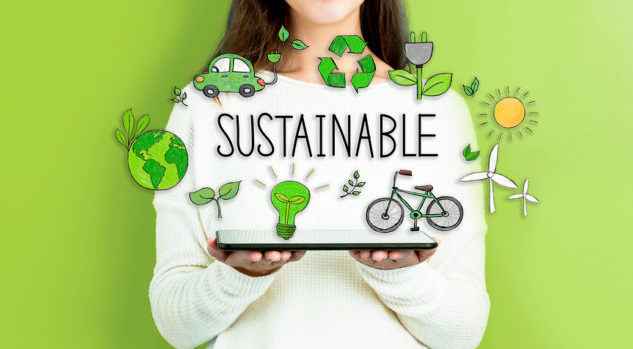Last updated on September 19th, 2023 at 07:13 am
The subject of waste management in urban centres is unique. This is partly because cities expand due to population growth which correlates with the amount of waste generated.
This article seeks to address four core areas namely; challenges associated with urban trash pickup, and strategies for effective trash pickup in densely populated cities. Thereafter, we’ll examine: encouraging citizens’ participation in trash pickup programs and innovative solutions for managing and reducing urban trash.
Table of Contents
The Challenges Associated with Urban Trash Pickup
The urban setting has its unique challenges with trash pickup. Let us consider some of these issues here.
Illegal Disposal
Either for the reason of avoiding paying for the service or for convenience, people dump refuse in unauthorised places. This increased illicit dumping of refuse not only poses a serious health hazard to citizens but is a huge task for those in charge of managing it.
Diverse Range of Waste
Urban centres have a higher capability of generating different types of waste such as furniture and huge appliances. The handling of these refuse types sometimes requires special equipment and manpower – thus adding to the intricacy of refuse collection in such areas.
Excessive Waste
Cities are places that have a lot of hustling and bustling going on in it; so, the amount of waste generated will be huge. The management of these enormous volumes of waste can be a very daunting task for local authorities.
Littering
Littering the environment with waste products has persisted in many societies despite the enlightenment efforts against it. Carefree residents and individuals often litter the streets and sidewalks with refuse which becomes a huge workload for sanitation workers to clean up.
High Population Density
Generally, urban areas are known to have very high population density. This means, more people live within a small space radius than in remote areas or settlements. This implies the generation of huge waste products whose handling logistics can be both complex and demanding.
Weather Challenges
Weather conditions, especially when they are extreme can scatter waste all around the place making them more challenging to handle. Also, during heavy snow or rainfall, the work schedule of trash collecting may be significantly disrupted leading to an untidy and hazardous environment.
Strategies for Effective Trash Pickup in Densely Populated Cities
To keep urban centres clean and environmentally friendly, innovative approaches have to be adopted to efficiently manage to refuse collection and disposal. This section explores several strategies that can be implemented to achieve this.
Scheduled Pickup Routes
When designated points and routes well known to residents are marked out for dumping trash, it inhibits illicit waste dumping and reduces the chance of overflowing bins. This strategy, if well thought-out and implemented is been fundamentally provento be a good approach to refuse disposal and collection.
Incentivizing Responsible Behaviour
Incentivizing responsible waste disposal behaviour is a strategy that has been effectively implemented in some cities. When residents know that they stand to gain some rewards or discounts if they consistently dispose of their trash correctly, they’ll act responsibly, and, dispose of their garbage accordingly.
Weather-Resilient Solutions
A well-prepared waste disposal company will prepare for all-weather dump collection and disposal. You can check here at https://www.ridlyrubbishremoval.com.au/ to learn more about howadequate provisions are made to guarantee effective waste disposal all year round. Investing in weather-resistant trash containers and equipment to safeguard continuous workflow even during inclement weather is essential for sustaining a clean environment.
Smart Technology
The addition of technology can significantly enhance trash pickup operations and improve work efficiency. For example, a driver with GPS in their vehicle can do route optimization which helps them easily navigate congested urban streets leading to both fuel and time savings.
Public Awareness Campaigns
Public awareness will help to educate residents on responsible waste disposal methods and practices. With greater awareness, people will better understand the consequences of their actions which will reduce littering and illicit dumping practices.
Also, with informative campaigns, citizens can get information on best practices for recycling and appropriate waste disposal options. These approaches will invariably pay off positively in the waste disposal habits of residents with time.
Litter Collection Bins
High refuse disposal areas should be identified and litter collection bins should strategically be placed in such public places to mitigate careless dumping. These bins should be emptied regularly to avoid overflow and should be marked so no one is in doubt as to their purpose.
Community Cleanup Events
Cleanup events can be organized for residents to clean up public spaces and advocate for a cleaner and dump-free environment. A properly implemented community-organized cleanup event usually fosters pride and a sense of responsibility among participating residents.
Recycling Programs
The effective promotion of recycling reduces the overall volume of wastes needing collection. Meaning, the importance of instituting a comprehensive recycling program cannot be overstated. This implies residents should be able to practice recycling without hassles and be well-informed about recyclable materials.
Public-Private Partnerships (PPP)
Expertise and huge resources to boost waste collection and disposal can be brought in by partnership. Also, the partnership can be leveraged for the efficient handling of the huge volume of refuse peculiar to urban settings.
Encouraging Citizen Participation in Trash Pickup Programs
It is an error of a huge proportion to assume the job of maintaining a clean environment is solely that of the government. On the contrary, citizens’ involvement is complementary to ensuring a litter-free and clean neighbourhood. The following approaches can be adopted to get residents’ participation.
Raising Awareness
For residents to join, the awareness of the importance of trash pickup has to increase. Educating the people about the hazards of illicit refuse dumping and the aesthetic advantages of a clean community can arouse their interest. Also, these informative campaigns can influence their attitude positively about participating and refuse disposal practices.
Youth Involvement
It is a good initiative to involve schools and youth organizations in trash pickup programs. This can have a lasting impact and instil a sense of responsibility and environmental awareness in the next generation. This article here shows that youth involvement in sorting waste in China produced phenomenal results. It further suggests in its conclusion that similar outcomes can be replicated anywhere in the world where the model is implemented.
Social Media Campaigns
Residents can be encouraged to record and share their clean-up experience via popular social media platforms. By tapping into the power of social media, you can promote trash pickup efforts and foster a sense of communality among participating residents.
Community Engagement
Through community engagement in surveys, town hall meetings, and public forums residents get the chance to voice their opinion and can make meaningful contributions to effective trash pickup programs. This community involvement strategy instils a sense of ownership.
Accessible Resources
Ensure that trash pickup resources are easily accessible to the people – this will encourage more people to participate. Information on recycling bins, where to obtain trash bags, collection points, etc. should be clearly communicated.
Convenient Collection Points
At designated easily reachable points, ensure well-marked bins that have the capability of handling different types of waste are stationed. These recycling and trash collection points should be spread throughout the community.
Lead by Example
What is talk without walk? To encourage participation, community leaders and public officials can choose to participate in waste pickup and disposal campaigns to inspire others.
Innovative Solutions for Managing and Reducing Urban Trash
Owing to the rise in the amount of waste generated in urban areas across the globe the need for innovative ways of handling it has become even more imperative. In this section, consideration will be given to some ways this can be done.
Waste-to-Energy Facilities
Waste-to-energy (WTE) plants are an advanced technological approach for destroying non-recyclable waste and generating heat or electricity from the process. Good enough, the WTE method has the advantage of being a renewable energy source and reduces landfill waste.
Circular Economy Practices
The circular economy model encourages the evolution or transitioning of products and materials through the reuse, repair, and recycle cycle. This approach to waste treatment not only minimizes waste generation, it also potentially reduces the demand for raw materials.
Community Recycling Hubs
Community recycling hubs can be created to encourage responsive disposal of trash and resource recovery. Where this process is properly communicated and if possible, incentivized residents will be motivated to drop off their different recyclables and hazardous materials.
Smart Trash Bins
This smart bin automatically detects when the bin reaches full capacity and starts the process of compacting the trash. The automation process minimizes overflowing bins and helps to reduce the frequency of waste collection.
Recycling Innovation
Recycling technology is advancing in many ways; for example, chemical processes exist for recycling complex materials, and sorting of waste can also be done by robotic systems. These creative innovations enhance the simplification of the recovery of valuable resources from garbage.
Plastic Recycling Initiatives
Appreciable economic gains are made from the repurposing of plastic waste to make useful materials in society such as clothing or building materials. These commendable initiativeshave helped mitigate the negative environmental impact of plastics.
Public Awareness Campaigns
Education and continuous communication remain key to influencing the behaviour of individuals. Constant public awareness campaigns can inspire residents to adopt more environmentally friendly attitudes towards waste disposal.
Conclusion
Managing and collecting waste in urban environments requires that complex challenges be overcome. These challenges include high population density, littering or illicit waste disposal, and adverse weather conditions. They make the task of sanitation workers and local authorities a daunting one.
To adequately address the highlighted challenges, measures such as public awareness initiatives, and improved waste management solutions should be put in place. Other innovative solutions to ensure the surroundings remain clean, healthy, and sustainable should also be encouraged.
Also, to sustain a hazard-free environment, promoting citizens’ participation in trash pickup programs should be initiated. This and other activities like it will foster a sense of shared responsibility and pride in the community.
Urban areas will continue to expand, and so should investing in initiatives and systems that will bring eco-friendly solutions to waste management and a cleaner waste-free society.







